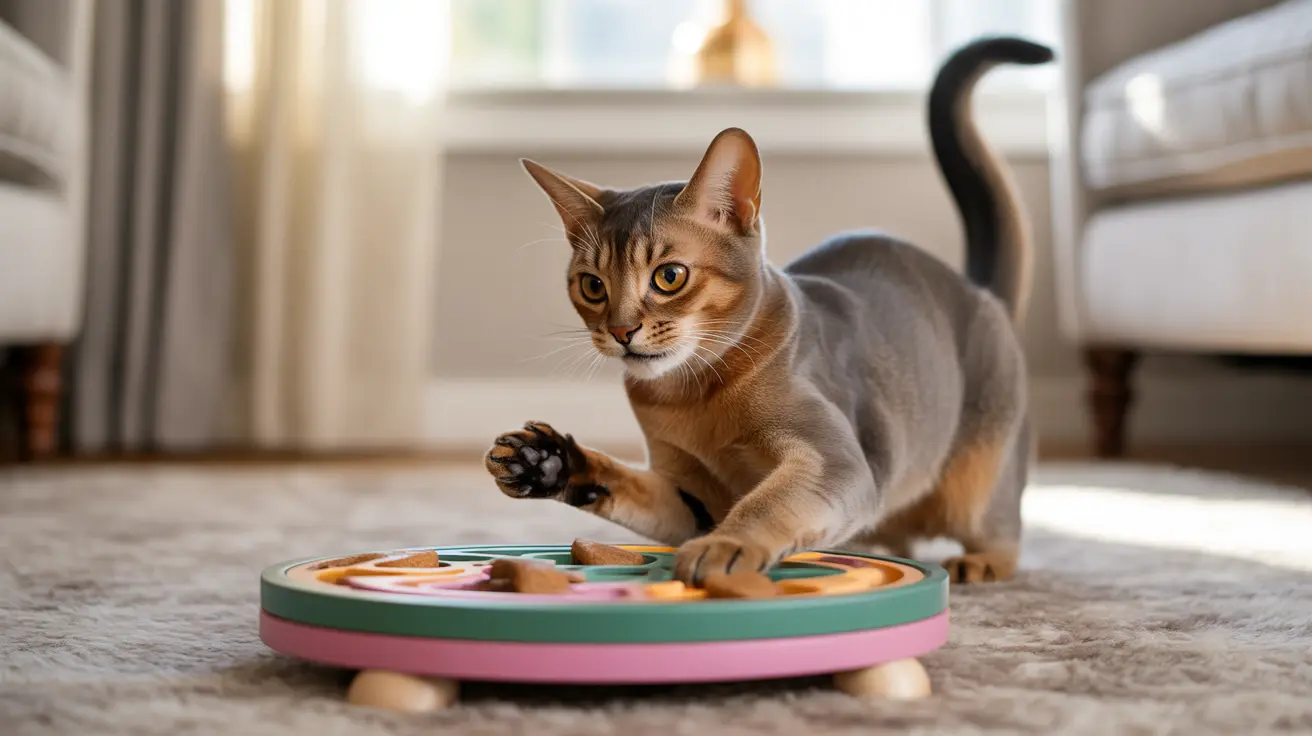If you've ever wondered "why is my cat always hungry," you're not alone. Many cat owners find themselves puzzled by their feline friend's seemingly insatiable appetite. While it's normal for cats to have regular feeding routines, constant hunger or excessive begging for food could signal underlying issues that deserve attention.
In this comprehensive guide, we'll explore the various reasons behind your cat's increased appetite, from medical conditions to behavioral factors, and provide practical solutions to help manage this common concern.
Medical Conditions That Increase Appetite
Hyperthyroidism in Cats
Hyperthyroidism is one of the most common causes of increased appetite in older cats. This endocrine disorder occurs when the thyroid gland produces excess hormones, leading to an accelerated metabolism. Affected cats typically show dramatic weight loss despite eating more than usual, along with increased activity and potential behavioral changes.
Diabetes and Its Effects
Feline diabetes can trigger intense hunger as the body struggles to process glucose effectively. Despite eating more, diabetic cats often lose weight because their cells can't properly utilize the energy from food. Additional symptoms include increased thirst and more frequent urination.
Parasitic Infections and Digestive Issues
Internal parasites like roundworms and tapeworms can cause increased hunger by stealing nutrients from your cat's digestive system. These unwanted guests can lead to malnutrition even when your cat is eating regular meals. Regular deworming and preventive care are essential to avoid these issues.
Dietary and Nutritional Factors
Quality of Food
Low-quality cat food may not provide adequate nutrition, leading your cat to eat more in an attempt to meet their nutritional needs. Ensuring your cat receives a balanced, high-quality diet appropriate for their age and activity level is crucial for maintaining healthy eating patterns.
Portion Control and Feeding Schedule
Irregular feeding schedules or inappropriate portion sizes can contribute to constant hunger. Establishing consistent meal times and measuring portions helps regulate your cat's appetite and maintain a healthy weight.
Behavioral and Environmental Causes
Boredom and Lack of Stimulation
Indoor cats may turn to food as entertainment when they're understimulated. Providing environmental enrichment through toys, climbing structures, and interactive play sessions can help reduce food-seeking behavior.
Stress and Anxiety
Changes in the household, new pets, or separation anxiety can trigger increased food-seeking behavior as a coping mechanism. Creating a stable, enriching environment helps reduce stress-related eating.
When to Consult Your Veterinarian
If your cat's increased appetite persists or is accompanied by weight loss, excessive thirst, or behavioral changes, it's important to seek veterinary care. Early detection and treatment of underlying medical conditions significantly improve outcomes.
Frequently Asked Questions
Why is my cat always hungry, and what are the most common medical causes?
The most common medical causes include hyperthyroidism, diabetes, intestinal parasites, and digestive disorders. These conditions affect your cat's ability to properly process nutrients or increase their metabolic rate, leading to constant hunger.
How can I tell if my cat's constant hunger is due to boredom or a dietary issue?
Observe your cat's behavior and weight. If they maintain a healthy weight despite increased appetite and seem more active when food is available, boredom might be the cause. Dietary issues usually accompany other symptoms like weight loss or changes in coat condition.
What are the signs of hyperthyroidism in cats, and how is it treated if my cat is always hungry?
Signs include increased appetite, weight loss, hyperactivity, increased thirst, and potential behavioral changes. Treatment options include medication, radioactive iodine therapy, or surgery, depending on your cat's specific situation.
How can I ensure my cat is getting enough nutrients if they seem hungry all the time?
Feed high-quality, age-appropriate cat food in measured portions at regular intervals. Consult with your veterinarian about proper portion sizes and potential supplements if needed. Consider using slow-feed bowls to help your cat feel more satisfied.
What are some environmental enrichment strategies to reduce my cat's hunger due to boredom?
Implement interactive toys, puzzle feeders, climbing trees, and scheduled play sessions. Create engaging activities around feeding time, such as hide-and-seek with small portions of food or using treat-dispensing toys that require mental and physical effort.






